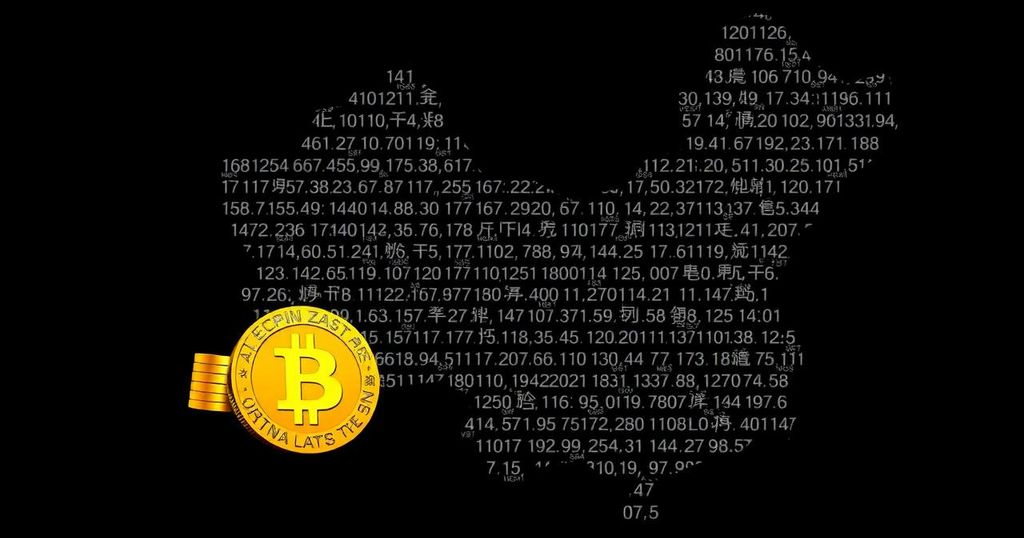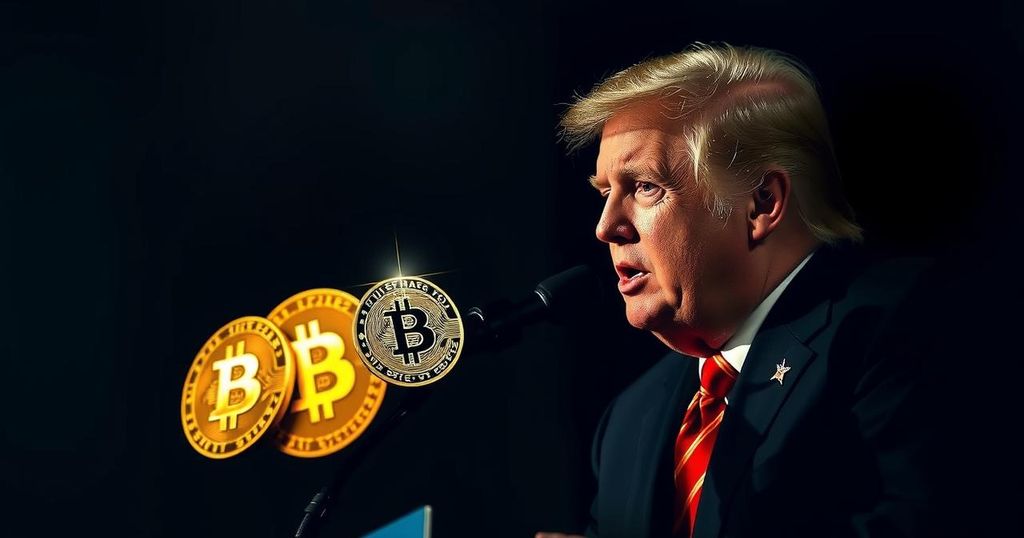China’s Significant Stimulus Package Raises Speculation on Bitcoin’s Future
The People’s Bank of China has launched its largest stimulus package since the pandemic, raising speculation regarding its impact on Bitcoin prices. Experts suggest a positive relationship between increased global liquidity and Bitcoin value, although reactions in the market may be muted due to China’s prior crypto trading bans. Concurrently, Hong Kong’s approval of Bitcoin ETFs indicates growing institutional interest in cryptocurrencies, despite limitations for mainland investors.
Recently, following a rate cut by the Federal Reserve, Bitcoin’s price experienced a modest increase. Meanwhile, the People’s Bank of China has implemented a significant stimulus package, the largest since the COVID-19 pandemic. This package, referred to as a “policy bazooka” by the South China Morning Post, includes a reduction in reserve requirements for banks and a cut in mortgage rates by 50 basis points. This aggressive monetary policy has raised speculation among cryptocurrency enthusiasts regarding its potential impact on Bitcoin’s price, particularly with the popular meme “money printer goes brrr” surfacing in discussions. Su Zhu, founder of the now-defunct Three Arrows Capital, indicated on social media that the “China stimulus cycle begins,” implying that these measures might bolster digital asset values. Following his statement, Bitcoin experienced a slight price increase, climbing from $63,000 to approximately $63,200, with a brief peak of $64,500 before retracting. Analysis by crypto expert Lyn Alden suggests a strong correlation between Bitcoin’s value and global liquidity trends, bolstered by the anticipated effects of the Chinese central bank’s easing. Jake Ostrovskis, an OTC trader at Wintermute, echoed this sentiment, stating the central bank’s actions inject substantial liquidity into global markets. In addition to supporting the cryptocurrency space, the People’s Bank of China is undertaking measures aimed at revitalizing a slowing economy, including injecting 800 billion yuan (approximately $113 billion) into the stock market and establishing a stock stabilization fund. However, market analysts express concern that despite the measures, consumer confidence in China remains shaky, with Phil Rosen from Opening Bell Daily characterizing the stimulus package as more of a “pellet gun” than a substantive bazooka. The Chinese government’s latest stimulus efforts arrive in the wake of the Federal Reserve’s rate cut, which generally favors risk assets such as stocks and cryptocurrency. Nevertheless, Brian Rudick, senior strategist at GSR, cautioned that Bitcoin’s market reaction may be muted, as China has implemented a ban on cryptocurrency trading since 2021. He noted, “When liquidity rises and interest rates fall, people move out on the risk spectrum, but they do not necessarily turn to Bitcoin.” Encouragingly, Hong Kong’s securities regulator recently approved the launch of three spot Bitcoin ETFs, providing opportunities for investment in digital assets, although these products remain unavailable to mainland investors. Notably, one ETF, launched by China Asset Management, reported a successful inflow of approximately 16 Bitcoins, valued at around $1 million, further fueling interest in the cryptocurrency sector.
The article discusses the recent monetary policies enacted by China’s central bank, particularly in light of a massive stimulus package aimed at stimulating economic growth following a pronounced slowdown. The implications of these actions on Bitcoin and the broader cryptocurrency market are explored, amidst global trends in liquidity and risk asset behavior. By considering historical correlations between Bitcoin’s performance and global liquidity, the article provides insights into the potential future movements of Bitcoin in response to economic stimuli.
In conclusion, the People’s Bank of China’s extensive stimulus measures are expected to enhance global liquidity and potentially support Bitcoin’s price amid uncertain market conditions. However, despite initial reactions in the cryptocurrency market, experts caution that the effects of these measures might be tempered by previous cryptocurrency trading bans in China. The establishment of Bitcoin ETFs in Hong Kong presents a potential avenue for the crypto market but remains limited for China’s mainland investors. The evolving market dynamics necessitate close observation of both domestic economic developments and global liquidity trends.
Original Source: decrypt.co








Post Comment